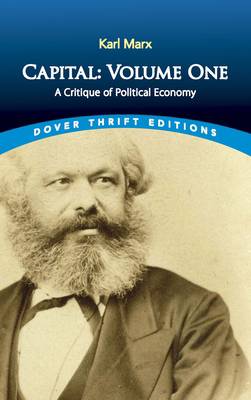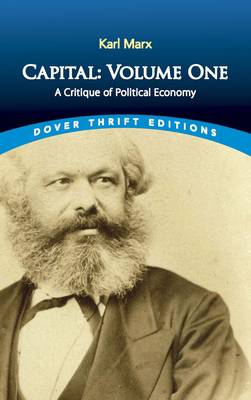
- Afhalen na 1 uur in een winkel met voorraad
- Gratis thuislevering in België vanaf € 30
- Ruim aanbod met 7 miljoen producten
- Afhalen na 1 uur in een winkel met voorraad
- Gratis thuislevering in België vanaf € 30
- Ruim aanbod met 7 miljoen producten
Zoeken
Omschrijving
Capital: Volume One by Karl Marx is a classic of political economics and was described by Friedrich Engels, the author's friend and collaborator, as "the bible of the working class." Thirty years in the making, this 1867 publication was the first in the three-part Das Kapital series and the only volume published during Marx's lifetime. The polemic asserts that society is advancing from primitive economic systems toward the utopian state of communism.
It remains a work of tremendous importance and influence and offers an astute critique of capitalism, exploring commodities, value, money, and other factors related to the system's historic origins and contemporary functions. The examination of these elements forms the basis of Marxist doctrine: the system is irredeemable, a revolution is imperative, and a socialist system is the only viable alternative, providing a structure in which production serves the needs of all rather than the enrichment of the elite.
It remains a work of tremendous importance and influence and offers an astute critique of capitalism, exploring commodities, value, money, and other factors related to the system's historic origins and contemporary functions. The examination of these elements forms the basis of Marxist doctrine: the system is irredeemable, a revolution is imperative, and a socialist system is the only viable alternative, providing a structure in which production serves the needs of all rather than the enrichment of the elite.
Specificaties
Betrokkenen
- Auteur(s):
- Uitgeverij:
Inhoud
- Aantal bladzijden:
- 784
- Taal:
- Engels
- Reeks:
Eigenschappen
- Productcode (EAN):
- 9780486832395
- Verschijningsdatum:
- 17/07/2019
- Uitvoering:
- Paperback
- Formaat:
- Trade paperback (VS)
- Afmetingen:
- 127 mm x 203 mm
- Gewicht:
- 544 g

Alleen bij Standaard Boekhandel
+ 38 punten op je klantenkaart van Standaard Boekhandel
Beoordelingen
We publiceren alleen reviews die voldoen aan de voorwaarden voor reviews. Bekijk onze voorwaarden voor reviews.











